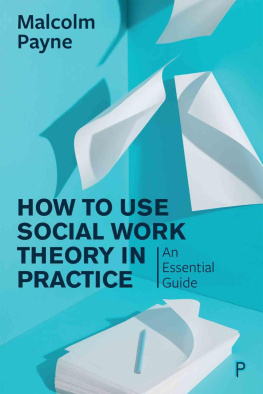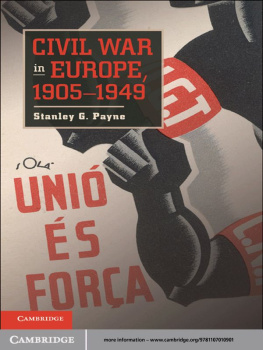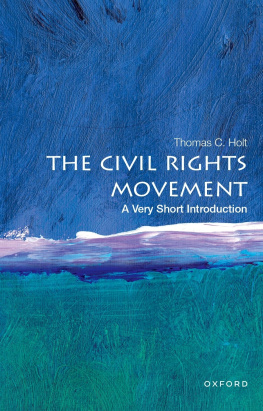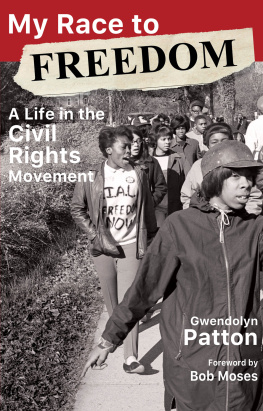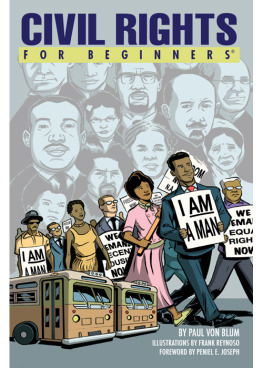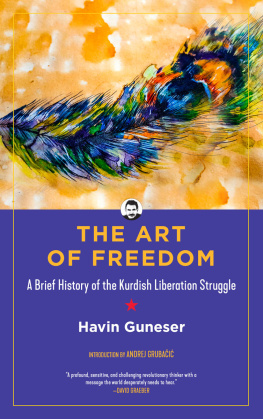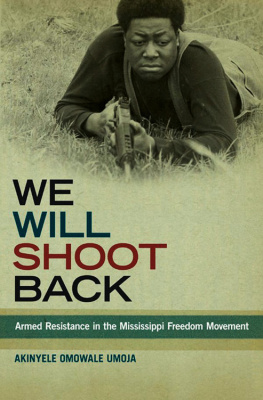Ive Got the Light of Freedom
A CENTENNIAL BOOK

One hundred books
published between 1990 and 1995
bear this special imprint of
the University of California Press.
We have chosen each Centennial Book
as an example of the Presss finest
publishing and bookmaking traditions
as we celebrate the beginning of
our second century.

UNIVERSITY OF CALIFORNIA PRESS
Founded in 1893
CHARLES M. PAYNE
Ive Got the Light
of Freedom

The Organizing Tradition and the
Mississippi Freedom Struggle
With a New Preface

University of California Press, one of the most distinguished university presses in the United States, enriches lives around the world by advancing scholarship in the humanities, social sciences, and natural sciences. Its activities are supported by the UC Press Foundation and by philanthropic contributions from individuals and institutions. For more information, visit www.ucpress.edu .
University of California Press
Berkeley and Los Angeles, California
University of California Press, Ltd.
London, England
1995, 2007 by The Regents of the University of California
First Paperback Printing 1996
Library of Congress Cataloging-in-Publication Data
Payne, Charles M.
Ive got the light of freedom : the organizing tradition and the Mississippi freedom struggle, with a new preface / Charles M. Payne.
p. cm.
A Centennial book.
Includes bibliographical references and index.
ISBN-13 978-0-520-25176-2 (pbk. : alk. paper)
1. Civil rights movementsMississippiHistory20th century. 2. Civil rights workersMississippiHistory20th century. 3. Afro-AmericansCivil rightsMississippi. 4. MississippiRace relations. 5. Civil rights movementsMississippiGreenwoodHistory20th century. 6. Greenwood (Miss.)Race relations.
I. Title.
E185.93.M6P39 2007
323.09762dc22
Printed in the United States of America
15 14 13 12 1l 10 09 08 07
10 9 8 7 6 5 4 3 2 1
The paper used in this publication meets the minimum requirements of ANSI/NISO
Z39.48-1992 (R 1997) (Permanence of Paper).
For my grandparents,
William Smith from Claxton, Georgia,
Anna Mae Smith from Fitzgerald, Georgia,
and Rachel Payne
from Cambridge, Maryland

CONTENTS
PREFACE TO THE 2OO7 EDITION
Whenever you find yourself on the side of the majority,
it is time to pause and reflect.
MARK TWAIN
Ive Got the Light of Freedom was published a year after John Dittmers Local People: The Struggle for Civil Rights in Mississippi (Illinois, 1994) and at about the same time as Adam Faircloughs Race & Democracy: The Civil Rights Struggle in Louisiana, 19151972 (Georgia, 1995). In retrospect, the publication of the three books relatively close together marked a turning point of sorts in civil rights scholarship. In different ways, all three works represented a departure from what Julian Bond calls the Master Narrative of the civil rights movement. That narrative, so familiar as to constitute almost a form of civic religion, goes:
Traditionally, relationships between the races in the South were oppressive. Many Southerners were very prejudiced against Blacks. In 1954, the Supreme Court decided this was wrong. Inspired by the court, courageous Americans, Black and white, took protest to the street, in the form of sit-ins, bus boycotts, and Freedom Rides. The nonviolent protest movement, led by the brilliant and eloquent Reverend Martin Luther King, aided by a sympathetic federal government, most notably the Kennedy brothers and a born-again Lyndon Johnson, was able to make America understand racial discrimination as a moral issue. Once Americans understood that discrimination was wrong, they quickly moved to remove racial prejudice and discrimination from American life, as evidenced by the Civil Rights Acts of 1964 and 1965. Dr. King was tragically slain in 1968. Fortunately, by that time the country had been changed, changed for the better in some fundamental ways. The movement was a remarkable victory for all Americans. By the 1970s, Southern states where Blacks could not have voted ten years earlier were sending African Americans to Congress. Inexplicably, just as the civil rights victories were piling up, many Black Americans, under the banner of Black Power, turned their backs on American society.
One college student recently came up with an even briefer version. One day, a nice old lady, Rosa Parks, sat down on a bus and got arrested. The next day, Martin Luther King Jr. stood up, and the Montgomery bus boycott followed. And sometime later, King delivered his famous I Have a Dream speech and segregation was over.
The last decade has witnessed a remarkable flowering of movement scholarship, much of it trying to dismantle the mainstream narrative, assertion by assertion. Scholars are questioning the top-down and triumphal underpinnings of the narrative; the overemphasis on the South as a site of struggle; the extent of nonviolence; the character of white resistance, including the idea that it was mostly a problem of the South; the continued marginalization of women; the chronology; the role of liberals; the equation of Black Power with the end of the movement; the separation between civil rights history and labor history; and the related tendency to underemphasize the economic goals of the movement. Even the language used to describe the movement is a point of contestation. Was it segregation or white supremacy? The civil rights movement or the freedom struggle? Mind you, all of this is argument among magi; popular understanding of the movement continues to be organized around Kennedy and King, around nonviolence and that speech.
Still, even if we dont know who is listening, the scholarly literature has expanded and changed in ways that could not have been foreseen just a decade ago. Ideas which were oppositional then have a hint of a new orthodoxy about them now. Reviewing that literature is too large a task to attempt here, but we can look at some of the subsequent work on the rural South, situating Light of Freedom in the work that came after (although just doing that now can be seen as controversial).
Among the many works which argue that the movements beginnings need to be sought long before Brown or the Montgomery bus boycott, Paul Ortizs Emancipation Betrayed: The Hidden History of Black Organizing and White Violence in Florida from Reconstruction to the Bloody Election of 1920 (California, 2005) is especially interesting because he couches the point in a study of a largely forgotten struggle, the post-World War I fight for the franchise and better economic conditions in Florida. He makes a very strong case for the salience of historical memory. He attributes much of the vibrancy of the Florida movement to the ability of activist leaders to ritually mobilize memories of successful Black struggle in the context of the Civil War and Reconstruction. He also stresses the importance of networks, not so much church-based groups as womens clubs, fraternal organizations, labor unions, and mutual-aid societies. Only a wave of state-sanctioned violence, in the context of utter national indifference, brought the movement to an end.
Next page

